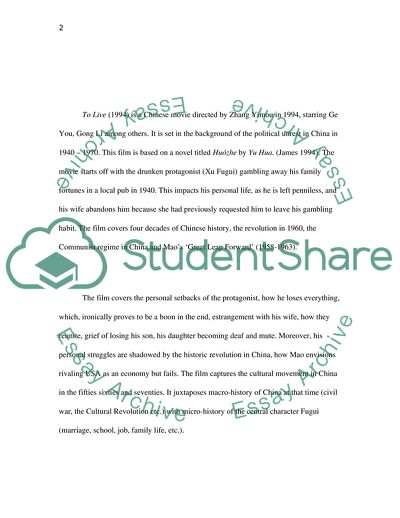Cite this document
(Macro-history and Micro-history in To Live Essay Example | Topics and Well Written Essays - 1250 words, n.d.)
Macro-history and Micro-history in To Live Essay Example | Topics and Well Written Essays - 1250 words. https://studentshare.org/visual-arts-film-studies/1810835-to-live-juxtaposes-macro-history-with-micro-historywhich-is-more-important
Macro-history and Micro-history in To Live Essay Example | Topics and Well Written Essays - 1250 words. https://studentshare.org/visual-arts-film-studies/1810835-to-live-juxtaposes-macro-history-with-micro-historywhich-is-more-important
(Macro-History and Micro-History in To Live Essay Example | Topics and Well Written Essays - 1250 Words)
Macro-History and Micro-History in To Live Essay Example | Topics and Well Written Essays - 1250 Words. https://studentshare.org/visual-arts-film-studies/1810835-to-live-juxtaposes-macro-history-with-micro-historywhich-is-more-important.
Macro-History and Micro-History in To Live Essay Example | Topics and Well Written Essays - 1250 Words. https://studentshare.org/visual-arts-film-studies/1810835-to-live-juxtaposes-macro-history-with-micro-historywhich-is-more-important.
“Macro-History and Micro-History in To Live Essay Example | Topics and Well Written Essays - 1250 Words”. https://studentshare.org/visual-arts-film-studies/1810835-to-live-juxtaposes-macro-history-with-micro-historywhich-is-more-important.


